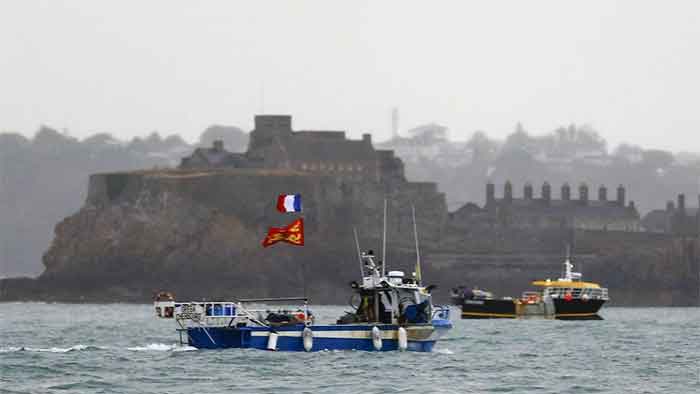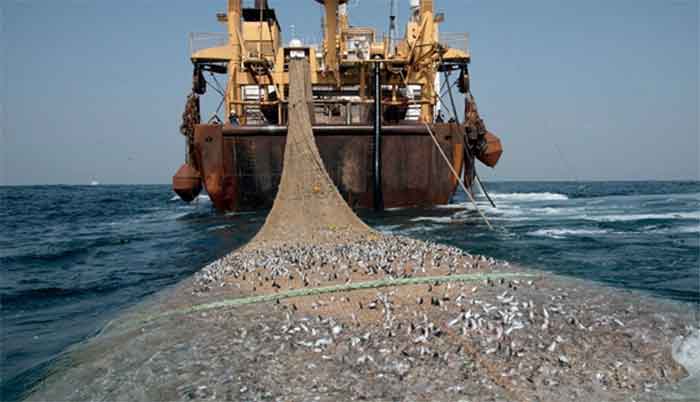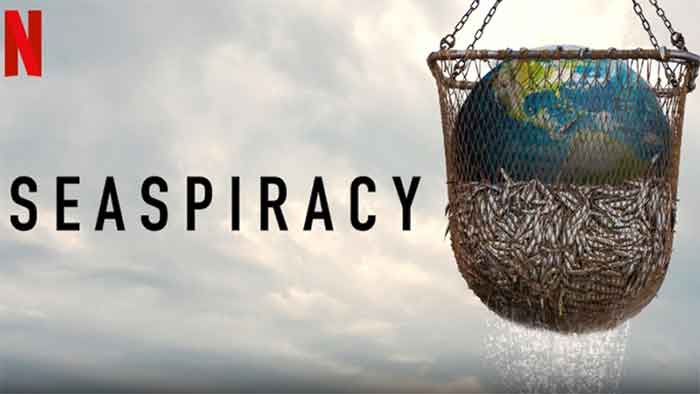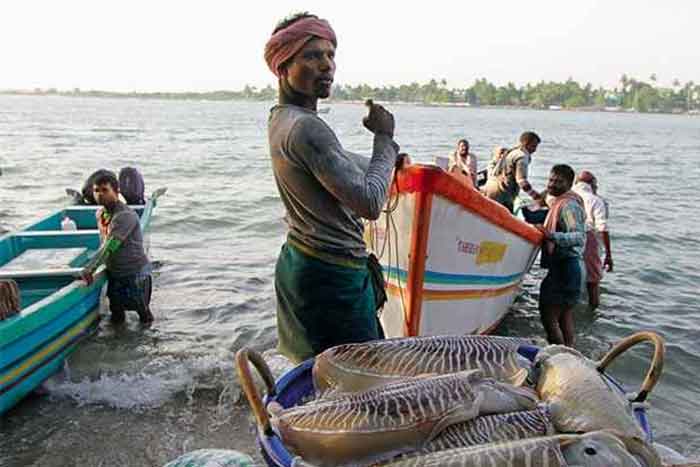
Over Fish, France and UK are having a quarrel. But it is not fish that has started the quarrel.
Media reports said:
France’s junior minister for European affairs Clement Beane threatened the UK on financial services if Britain failed to grant licenses to French fishermen.
Clement Beane said France would retaliate in sectors like banking in the European Union to which the U.K. wants access, according to an interview published Sunday in the Journal du Dimanche.
French fishermen are still owed 40 permits to catch in UK waters, the minister was quoted as saying. He also demanded the lifting of additional conditions imposed by the British island of Jersey for access to its waters.
The fight between the UK and France over post-Brexit fishing rights has grown increasingly bitter this past week, even drawing in the countries’ navies. The governments in Paris and London deployed their military ships to keep the peace after dozens of French fishing boats mounted a protest in the waters off Jersey.
In comments to the weekly newspaper, Beaune said the UK is constantly testing the resolve of France and the EU in an attempt to show that Brexit was liberating.
Britain is trying to reopen discussions on parts of the post-Brexit trade accord in which it had to make concessions, he said.
“We won’t let them do this,” he said, adding that France will be firm on fisheries, while remaining open to dialog.
On Saturday, Jersey fishermen started giving away their lobster hauls for free on the island after France banned the off-loading of their catch at some French ports, the Daily Mail reported, citing fishermen and local authorities.
The deployment of vessels by two of Europe’s biggest military powers demonstrated the scale of the ongoing friction caused by Britain’s departure from the EU.
Negotiations over fish were one of the most contentious elements of the accord.
French Maritime minister Annick Girardin has warned France could shut down the undersea cables that supply Jersey with 95% of its electricity.
French fishing vessels stage a protest over changes in access to waters following the UK’s departure from the EU. The standoff prompted Britain and France to deploy warships in the strip of sea that separates them. Billed as a game of chicken by UK tabloids, the same press rejoiced when the French went home.
So while the immediate danger was defused, the sight of a naval confrontation near an island of 100,000 inhabitants was a reminder of the real-life consequences of an acrimonious divorce and why it is such populist political catnip.
Though few in the outside world can locate Jersey on a map, the fight is over a lot more than the mackerel, pollock and crab off its shores.
As part of the Channel Islands, Jersey is neither in the EU nor officially in the UK. It is a self-governing British crown dependency 14 miles away from France that relies on Britain for its defense. People there had no say in Brexit, a topic that consumed politics and markets.
Fish was the last sticking point in talks and one that resurrected hostility between two neighbors that have taken turns being bitter enemies and strategic allies over centuries. So Jersey, almost by accident, got ensnared in the fraught cross-Channel relations in recent months that has involved everything from customs bureaucracy to coronavirus vaccines.
“Our cultural ties go back a thousand years,” said John Le Fondre, Jersey’s chief minister, who has been working with the UK government and European Commission on resolving the fishing problem. “This slight difficulty is saddening.”
The latest clash came after France’s maritime minister, the daughter of a Brittany fisherman, suggested the government could cut off electricity supply to Jersey if the country’s grievances over fish were not addressed.
The Brexit deal was that EU boats would still be allowed to fish in UK waters for years, though their access would need to be curtailed and also there would be a lot more red tape. There are delays in getting licenses and the pandemic did not help.
Annick Girardin’s words triggered a series of unintended consequences, according to French officials speaking on condition of anonymity. They said they were surprised how quickly the situation escalated and worked the back channels to smooth things over. In Paris, the government was left navigating between appeasing the UK and publicly showing support for embattled fishermen.
The showdown also had its political uses. UK Prime Minister Boris Johnson enjoyed a wave of positive headlines with the Daily Mail labelling the retreat of the French fishing fleet as “Le grand surrender.” For French President Emmanuel Macron, some saber-rattling at the British is no bad thing when you face a challenge from the far-right leader Marine Le Pen. France’s junior minister for European affairs threatened the UK on financial services if Britain failed to grant licenses to French fishermen.
Amassing around Jersey’s 16th century Elizabeth Castle beside its main harbor, the 60-strong flotilla was met with a military history re-enactment enthusiast firing a musket from the castle’s ramparts. France last tried to invade Jersey in 1781 during the American Revolutionary War, the defeat of which is celebrated by various monuments throughout the island.
Yet screaming headlines of a potential blockade and the cutting of power supplies also carried a sinister undertone for some residents, given how they suffered food shortages when the island was occupied by the Germans during World War II. On Sunday, it celebrates the liberation from the Nazis.
At issue now is whether the spat can be quickly resolved, after French boats argue they were wrongly denied access and the European Commission accused the UK of breaching the terms of the Brexit deal. Caught in the middle, the Jersey government said it believes there are practical solutions.
The value of the fishing at stake is a rounding error for the French, UK and Jersey economies, but it’s an emotive issue. Disagreement over fish almost derailed the entire trade deal between Britain and the EU, before a compromise was reached at the 11th hour on Christmas Eve.
“It’s not just about a few mackerels,” the EU’s chief Brexit negotiator, Michel Barnier, wrote in his recently published diary about the trade negotiations. “It’s about men and women who live dangerously, courageous communities, who sustain coastal territories.” A last-minute British proposal on fishing introduced just days before a deadline ran out on producing the trade and cooperation agreement was a bluff, he said, a document “filled with traps, false compromises and backsliding.”
Fishermen in Jersey have been particularly affected, with Faulkner having lost up to 50% of his sales from not being able to export to France due to the rising political tensions and new red tape. Jason Bonhomme, another fishermen, was unable to land his catch of cuttlefish in Carteret because an intimidating group of French fishermen stopped him at the quay.
Brexit has been “carnage,” one person who fishes lobster and crab around Jersey said, who asked not to be identified. They used to export their catch in France, but now they must try to sell it all locally.
Some zones remain closed, which means boats are wading into other waters. French fishermen will argue there are also other unresolved factors in play, such as how the fish reproduce closer to their warmer coastline before migrating closer to England at the adult age when they become prize catch.
A quirk of the dispute is the rich seam of French heritage that runs through Jersey, which is best known internationally for its potatoes and cows. Many of its road names are in French and Jerriais —the local dialect that is still taught in the island’s schools, though few people speak it natively — is closely related to French.
It is also not the first time French boats have made a statement around Jersey: In 1998, some Frenchmen briefly captured the Minquiers, a small group of rocks and islands belonging to Jersey off its south coast where fishermen often land.
For all the controversy, years of fishing together in shared waters means many Jersey and French fishermen are friends and they do not want to see the dispute get out hand. Many Jersey people have French blood in their ancestry and the island has long enjoyed good relations with its closest neighbor, the lobster-fisher said.
French authorities have announced that Jersey fishermen will be banned from landing their catch at three ports in response to the first major trade dispute of the Brexit era. It comes days after Macron’s nation threatened to cut off the Crown dependency’s electricity over fishing licenses. The move saw roughly 60 French fishermen descend on the Channel Island’s main port, St Helier, in protest, sparking the swift dispatch of two Royal Navy ships – HMS Severn and HMS Tamar.
France then risked escalating tensions by sending two vessels to the area “in a spirit of responsibility” after accusing Jersey of breaching the post-Brexit trade deal signed by the UK.
In a tit-for-tat retaliation, local leaders in La Manche, Normandy, said that boats from the Channel island will now be suspended from entering the ports of Granville, Barneville-Carteret and Dielette until further notice.
Former Army officer Drummond has slammed Macron for making a “storm in a teacup” situation and highlighted the French president’s apparent content to the UK over the last few months.
He said: “The problem with France is they have not been helpful with the relationship we are trying to build with Europe post-Brexit.
“In particular, Macron’s blockade of the UK just before Christmas was completely unacceptable.
“He was doing that to manoeuvre politically internally, but the damage that caused to Franco-Anglo relations was enormous.
“You would expect an enemy to treat you like that, not an ally.”
Drummond was particularly frustrated with Paris as Britain has spent the last three years “helping France” with a UN resolution mission dubbed Operation Barkhane.
The UK has loaned France three Chinook helicopters and a further 250 personnel to help counter the threat from groups including al-Qaeda and ISIS.
The two Royal Navy ships have left Jersey, but “remain on standby” following talks between Jersey officials and the French fishermen.
UK Prime Minister Boris Johnson said the situation “has been resolved,” but authorities in Jersey have promised further talks with France to ease tensions.
The row broke out over new licences that French fishermen have been required to obtain from the Jersey government to carry on operating.
But Jersey fishermen have now claimed they have been unable to land their hauls in France.
Ian Gorst, Jersey’s minister for external relations, said on Friday that he believed the decision falls foul of the Brexit trade deal.
He said: “For that reason, we are referring the notice of this decision immediately to the European Commission.”
GET COUNTERCURRENTS DAILY NEWSLETTER STRAIGHT TO YOUR INBOX













































